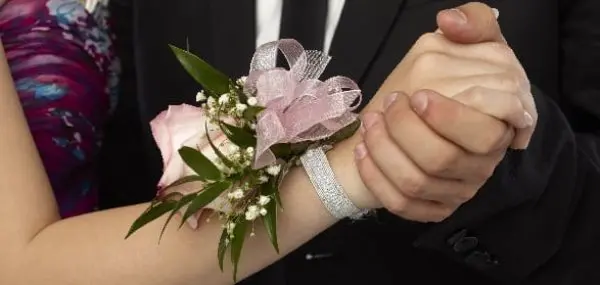I sometimes joke that the thing that scares parents most about their tweens going to middle school is ALL OF IT.
In all seriousness, though, it might be fair to put dating—or “hanging out” as many middle schoolers say—near the top of the list. If dating in middle school terrifies you, take stock of your concerns.
Perhaps you’re worried about early physical intimacy, heartbreak, or your tween’s reputation. Don’t overwhelm yourself or your child with fears. Instead, choose the top one or two to discuss calmly and without criticism. Whenever your child wants something, they are more open to listening to you. Use that to your advantage.
This is a good opportunity to share your values, perspectives, and hopes.
If you react reasonably, with a willingness to learn and be flexible, your child will trust your judgment and continue to seek your advice as the issues around dating become increasingly complex.
Your tween might show an interest in being more than friends with someone they know. This is one of many signs your tween is entering adolescence. It’s helpful for parents to recognize that being more than friends doesn’t necessarily mean an interest in physical intimacy. A lack of clear terms with these middle school relationships is part of the problem. When a middle schooler wants to date or go out, we’re left wondering, “What does middle school dating even mean?”
How to Approach Dating In Middle School:
1. Define terms
Begin by asking your tween what it means for them.
Is it spending time together at the mall or movies? Or maybe it’s just extra texting and a change in her social media status. You won’t know unless you ask. This is also an opportunity for you to talk about your own expectations for what you believe is appropriate in middle school.
2. Establish ground rules
There is no hard rule for when tweens should be allowed to date. Keep in mind that even if you forbid young relationships and dating, your tween may still spend lots of time with a special someone at school. What’s more, forbidden fruit has a unique appeal.
Rather than a flat no, you might consider a more nuanced answer that includes “yes” to some scenarios (Okay, you can say you’re going out), “maybe” to others (I’ll consider whether you can go to a movie together, but if I say yes, I will be in the theater a few rows away), and “no” to others (You are too young to go to the movies without a chaperone and, by the way, you’re too young to kiss).
You should also be talking about the appropriate age or circumstance for different levels of physical contact. This is not for the faint of heart, but you can do it. Otherwise, how will your tween know what’s appropriate for a young relationship?
3. Recognize the positives
For many tweens, dating in middle school simply means texting excessively. Remember, middle schoolers often feel isolated and abnormal by nature. They fret about being likable and accepted.
To be dating (whatever that means) can be the ultimate confidence booster.
It can also be a nice way to make a personal connection, learn how respectful relationships are built, and develop personal insight. Plus, remember the thrill of your first crush? It’s just fun.
4. Beware of risks
Do keep an eye out for serial relationships, though. A 2013 study from the University of Georgia found that middle schoolers who were in high-frequency or back-to-back relationships tended to be prone to higher-risk behaviors, like drinking or doing drugs, later in adolescence.
I would caution against group dating, too. It may seem like a safety net to have more tweens around, but the group mentality can quickly push boundaries. Two awkward, gawky tweens forced to think of conversation is much better than a group of tweens daring the couple to go into a closet for seven minutes. (I don’t know if that’s still a thing, but it was when I was in middle school.) You get the point.




